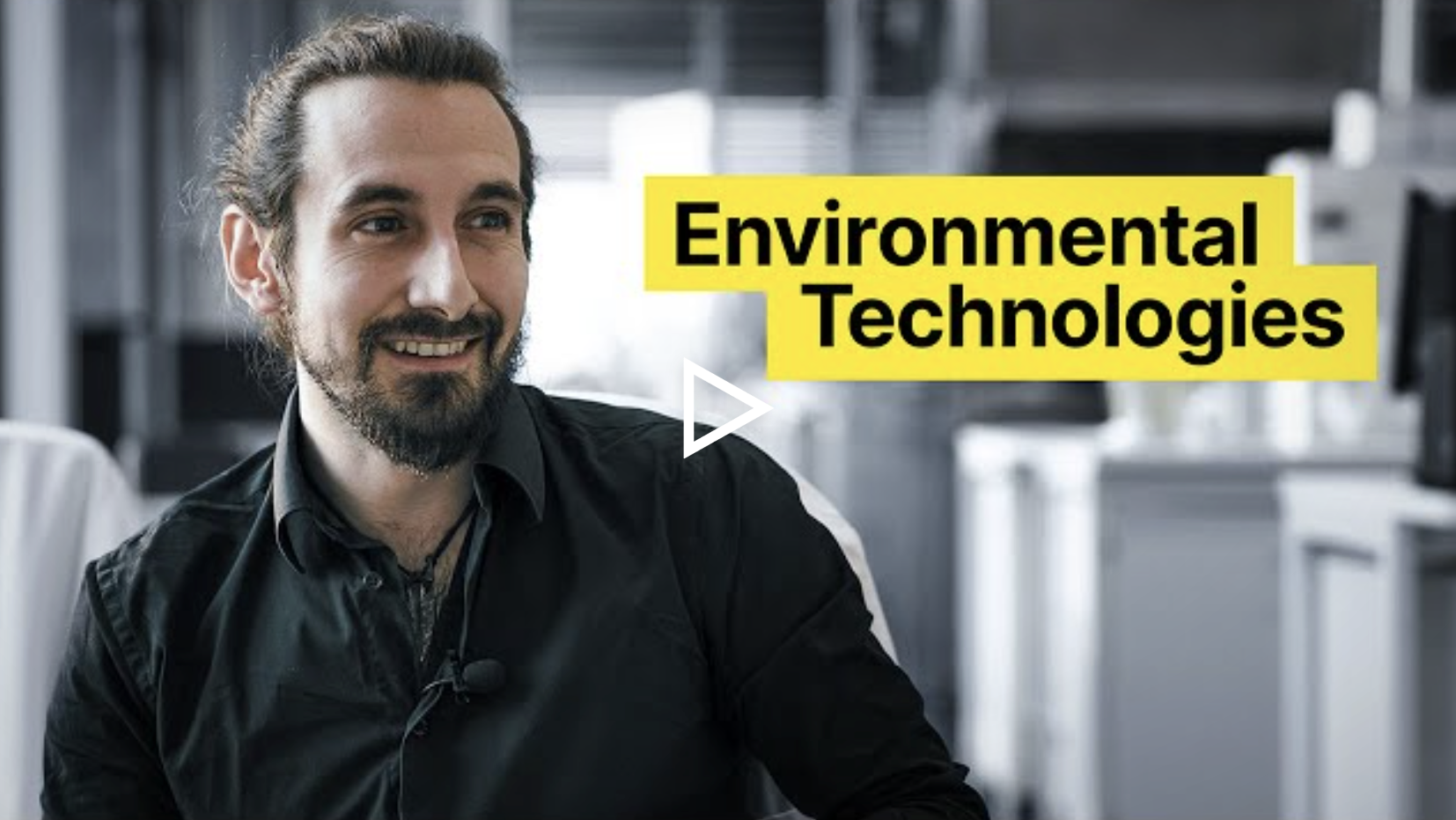MSc in Life Sciences - Environmental Technologies
Hochschule für Life Sciences FHNW
Do you want to help shape the future of environmental technology and develop practical solutions? Our Master’s in Environmental Technologies prepares you for responsible and innovative work in industry, research and consulting.

- In‑depth environmental risk assessment: Build expertise in risk analysis, environmental assessment and risk management. Understand how pollutants move and act across environments.
- Practice‑oriented Master’s thesis: Undertake an eight‑month thesis with an industry partner, at a university or research institute - the ideal way to apply your knowledge and strengthen your professional network.
- Tailored specialisations: Combine focus areas such as sustainable industrial processes with a choice of electives to fit your goals.
- International opportunities: Pursue a double degree with a partner university or complete your thesis abroad.
Steckbrief
Zukunftsaussichten
What career opportunities are open to you?
The Environmental Technologies specialisation provides the depth needed for challenging roles in industry, research and consulting. The growing issues of climate change, resource scarcity and new pollutants are driving the demand for qualified environmental technology experts in a range of sectors around the world. You will be ideally positioned for a future-oriented career in a highly relevant field.
Typical areas of employment for graduates include:
- Environmental technology: Development and implementation of technical solutions for environmental protection and sustainability.
- Industry: Integration of environmentally friendly processes in production and logistics.
- Environmental consulting: Analysis, strategy development and implementation of sustainable concepts.
- Research: Development of innovative methods to reduce emissions and use resources.
- Public institutions and authorities: Environmental monitoring, regulation and planning.
- The circular economy: Optimisation of material cycles and recycling processes.
Aufbau und Inhalte
The programme combines rigorous scientific training with practical application to address environmental and resource challenges in industrial contexts.
You gain in‑depth knowledge in the following areas:
- Environmental risk assessment: Fate and effects of pollutants across air, water, soil and biota.
- Protection of water resources: Advanced water and wastewater treatment; sustainable water management for industry, agriculture and households.
- Sustainable industrial processes:
- Economy and ecology: Evaluation of sustainable production methods with a focus on the circular economy.
- Resource efficiency: Analysis of material flows and recovery of valuable resources.
- Environmental process technology: Development of technical processes to reduce industrial environmental pollution.
- Minimisation of pollutant emissions:
- Waste management and technologies: Solid waste management, recovery and recycling.
- Environmental remediation: Application of physicochemical and biological processes to remediate contaminated sites.
In addition to these focus areas, you will benefit from practical training in state-of-the-art research laboratories and pilot plants in our university’s Process Technology Center (PTC).
Elective modules such as Chemical Engineering, Analytical Chemistry or Biotechnology allow you to pursue individual specialisation depending on your interests and career goal.
Module Groups for the Environmental Technologies specialisation
A total of 50 ECTS credits (i.e. 17 modules each worth 3 ECTS credits) must be earned. Other modules can be selected: Module overview (English)
You can also plan your studies in advance with our MSc Life Sciences planning tool.
Details on the degree programme
Vertiefungen
International
Would you like to give your master’s degree an international element and obtain two degrees? Students can apply to do an additional semester at the University of Chemistry and Technology Prague or at the University of Bologna.
Independently of the double degree, you may also complete your Master’s thesis abroad to gain international experience. Further information is available from the International Office or here: Double Degree.
Leitung und Dozierende
Voraussetzungen, Zulassung, Eignungsabklärung
Direct admission requires
If you do not fully meet the requirements, you may be invited to a personal interview.
Proof of sufficient English skills must be provided with one of the following certificates:
If you are unable to provide evidence of the required command of English, you are obliged to improve it during the course of your master’s degree programme. You can either attend the advanced English course offered by the FHNW School of Life Sciences or other suitable language courses. At the end of the programme, proof must be provided that the required level of English has been achieved (see table above).
